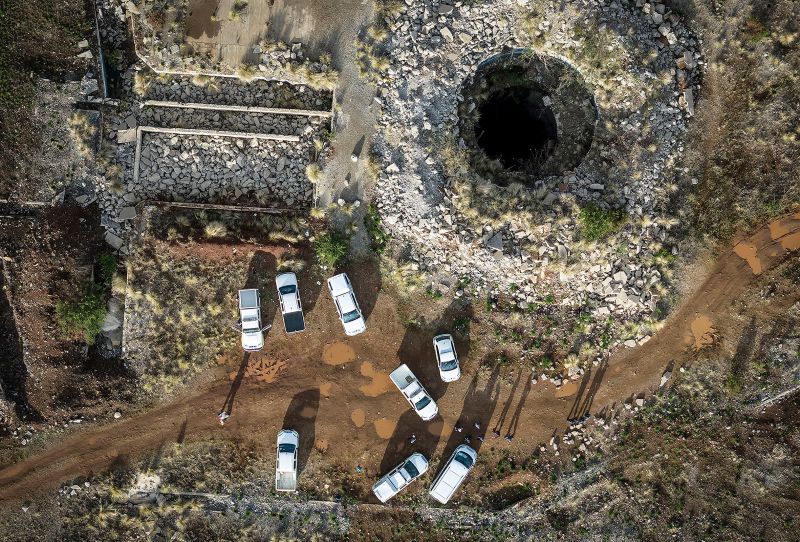
Government Refuses Aid to 4,000 Stranded Illegal Miners: An Untold Saga of South Africa
The South African government recently made a stern proclamation concerning the issue of 4,000 illegal miners currently operating inside a closed mine. The governing bodies stipulated that they would not provide any means of support or aid to these miners, sparking a furore among various parties within the country.
To start with, it is essential to mention that the miners in question are considered illegal, as they are not authorized or approved by the government to carry out mining activities. These miners, often referred to as zama zamas, undertake the hazardous task without the necessary protective gear, let alone legal permits. The mine in question has been officially closed by its holders due to either exhaustion of resources or deemed unsafe for human activity. However, it has since been overrun by these illegal miners in pursuit of remaining ore veins.
The stance taken by the government comes amidst growing concerns over the rampant illegal mining activities spreading across the South African mining sector. Their primary issue centers on safety violations that these miners constantly face, which puts their lives and those in adjacent communities at considerable risk. However, the government’s official position does not offer solutions to this life-threatening problem that these miners face daily.
The government, by refusing aid, compels these illegal miners to survive off the grid and without any substantial support. This predicament draws attention to the larger socio-economic issues plaguing the region. Unemployment and economic instability have pushed these men to search for gold in abandoned and decommissioned mines. Their desperation signifies the dearth of opportunities available to them, and the government’s decision to not intervene magnifies their plight.
Mining companies have been vocal about their discontent over the prevailing situation. They contend that not only are their operations disrupted by these illegal mining activities, but they are also losing significant amounts of revenue as a result. Many also argue that the government’s refusal to aid these miners indirectly exacerbates the companies’ problems and fosters a climate of unchecked unlawful mining operation.
On the other hand, there is a significant public outcry regarding the harsh stance taken by the government. Human rights advocates and concerned citizens argue that while these miners are clearly breaking the law, the government should not forsake its duty to safeguard their lives.
What is notable in this situation is the absence of constructive dialogue aimed at finding a long-lasting resolution. The government’s decision does little to address the underlying issues that push individuals towards such risk-laden activities. Lack of viable job prospects, wide-reaching poverty and a lack of education or skill-training are among
